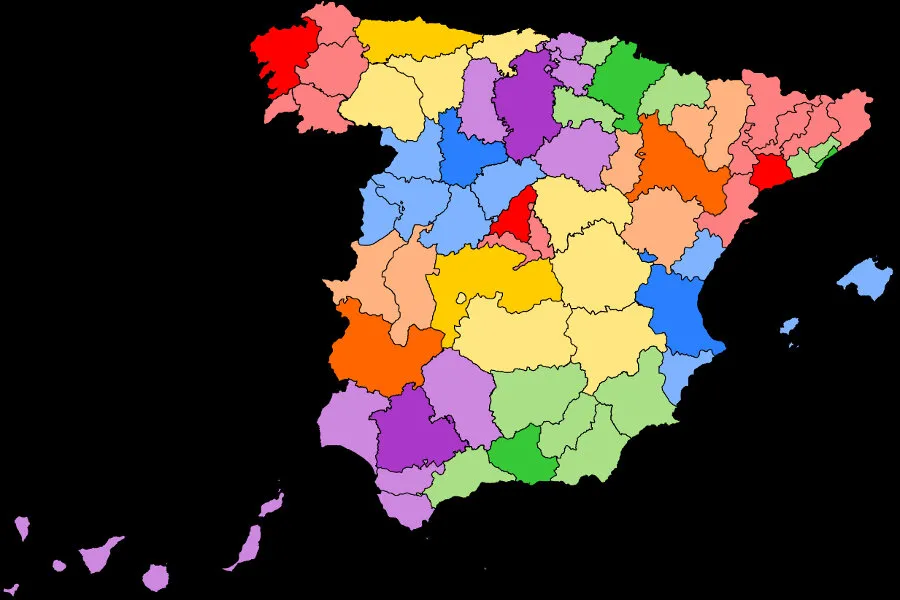Spanish Cardinal: Clerical-Abuse Audit Is a ‘Step Forward’ in Transparency
The head of the Spanish Catholic bishops’ conference said that the Church sees the comprehensive audit as a step forward in transparency and reparation to victims.

At the launch of an independent investigation into clerical sex-abuse cases in Spain, the head of the Spanish Catholic bishops’ conference said that the Church sees the comprehensive audit as a step forward in transparency and reparation to victims.
Cardinal Juan José Omella, the archbishop of Barcelona, apologized at a press conference on Feb. 22 on behalf of the Catholic Church in Spain to the victims “who have suffered and continue to suffer so much pain.”
“We are hurt by all the abuse, including that which has occurred in other institutions. This hurts us, and we would like these cases to be investigated as well,” Cardinal Omella said, according to ACI Prensa, CNA’s Spanish-language news partner.
In commissioning the investigation, Cardinal Omella said that the Church in Spain was showing its willingness to “take a step forward in its obligation of public transparency and aid and reparation to victims, in addition to collaborating with the authorities on cases that involve the Church.”
According to the Spanish bishops’ conference, the investigation is expected to take a year to complete. Cardinal Omella underlined that it was necessary to have enough time to both “clarify past cases and to provide for the highest standards of accountability that will prevent the recurrence of abuses.”
The independent audit will be undertaken by the Cremades & Calvo-Sotelo law firm and is intended to create a “comprehensive report” of all sex-abuse cases committed by members of the Catholic Church spanning decades.
The team, composed so far of 18 people, carrying out the audit of all historic cases that have been documented in Spain to date faces a momentous task.
Spain, a country smaller than the U.S. state of Texas, has 70 Catholic dioceses and archdioceses.
More than 90% of people among Spain’s 46 million population were baptized and raised Christian, though only 66% of Spaniards identify as Christian as adults, according to a 2017 Pew Research Center study.
Javier Cremades, the president of the Cremades & Calvo-Sotelo law firm, called the investigation “the most complex issue that we have faced to date.”
Speaking at the same press conference, Cremades said that he had been in touch with the French independent commission on sexual abuse in the Church, which produced a 2,500-page report last October that generated headlines worldwide.
He added that he would try to learn “from the mistakes and successes of all those who have taken on this task with professionalism.”
“We are going to make a Spanish model; that is, a hybrid model with German methodology, learning the positive aspects of the French model, but connecting with the work carried out for years by the offices of the dioceses of Spain,” Cremades said.
The team conducting the investigation will include several former magistrates of the Constitutional Court and Supreme Court of Spain, together with two members of the Westpfahl Spilker Wastl law firm that conducted a high-profile study of the German Archdiocese of Munich and Freising, who will travel to Madrid once a month.
In addition to a comprehensive report, the investigation is expected to open an independent channel to receive potential complaints and recommend further preventative measures.
The announcement of the audit came as three proposals for the creation of commissions to investigate cases of sexual abuse committed by members of the Church were under consideration in Spain.
The first proposal was presented by Podemos, a left-wing party that is part of the governing coalition, as well the Catalan and Basque nationalist parties, the Republican Left of Catalonia and the EH Bildu.
The proposal was admitted for debate in the Congress of Deputies, the lower house of Spain’s parliament, on Feb. 1. The People’s Party and Vox party both voted against the proposal and asked that the commission be broader, to include sex-abuse cases that occur outside of the Catholic Church.
Spanish Attorney General Dolores Delgado requested that the 17 head prosecutors of the country’s autonomous regional governments remit all open criminal proceedings for sexual abuse committed by members of the Church and other religious groups.
The Spanish Socialist Workers’ Party (PSOE) introduced a proposal on Feb. 7 in the Congress of Deputies for the investigative commission to be led by the People’s ombudsman, Ángel Gabilondo.
Cremades said at the press conference that his firm’s independent investigation would be conducted in collaboration with the government. He added that after he accepted the commission from the Spanish bishops’ conference, he had contacted Gabilondo.
“This is not an alternative but a complement, so that, in a professional manner, in a certified manner, there is no doubt that there may be any manipulation of the investigation by the Church, by public powers or by a third party,” Cremades said.
“There is a genuine interest in the truth, and anyone who can contribute to clarify what happened, to clarify and prevent it in the future will be fundamental in this matter, which is not only of the Catholic Church but is a wound of the whole society.”
- Keywords:
- church in spain
- clerical sexual abuse

















